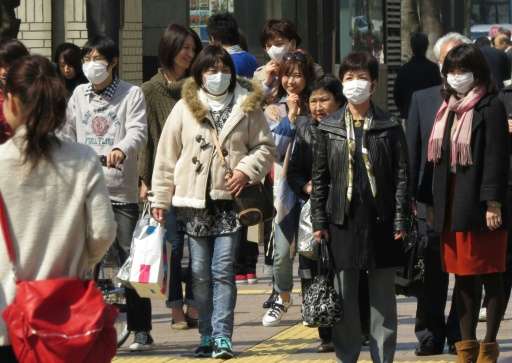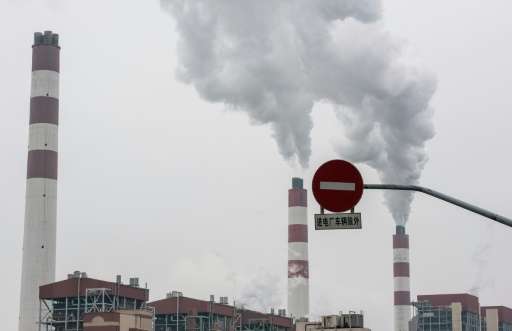NGOs slam Japan for investing abroad in carbon-polluting coal

Days before Japan will host a G7 summit, NGOs slammed the Asian nation for financing coal-powered energy in developing countries, even as other countries and investors shun the climate-damaging fossil fuel.
Within the G7 bloc, Japan stands out for funnelling more than $22 billion (20 billion euros) into overseas coal plants since 2007, more than the other six countries combined.
Moreover, the club of rich nation's only Asian member has another $10 billion worth of coal projects in the pipeline, according to a report by six environmental groups, including the National Resources Defence Council (NRDC) and WWF.
Japan will host a two-day meeting of the G7—which also includes the United States, Britain, Canada, France, Germany and Italy—starting Thursday in the Ise-shima region.
Germany is second on the list in overseas coal financing, having poured some $9 billion into coal-based power over the same period.
"Financing new coal plants and coal development in the era of dangerous climate change is blatantly reckless," Jake Schmidt, the head of the NRDC's international programme said Tuesday on the margins of UN climate talks in Bonn.
Such investments "tie developing countries to the fossil fuels of our past, not the clear energy of our future."
Diplomats from 196 nations have gathered in Bonn five months after hammering through a landmark climate pact that seeks to wean the world economy from fossil fuels, by far the main driver of global warming.

Coal is the biggest climate change culprit, generating more carbon pollution per unit of energy generated than oil or gas.
Some 40 percent of the world's electricity is powered by coal, roughly the same as 40 years ago, according to the International Energy Agency.
China fuelled three decades of double-digit growth mainly with coal, and today accounts for nearly half of world consumption, followed by India.
Turning away from coal
But both countries have made a massive push to develop renewables and increase energy efficiency, with China's use of coal tapering off in the last two years.
Within the G7, Japan is alone in investing heavily in coal-fired energy on its own soil, with more than 40 new power plants on the drawing board.
The energy-starved country suspended nuclear power generation after an earthquake and tsunami crippled the Fukushima nuclear plant in 2011, contaminating a large area.
"Japan continues to be the only G7 country undertaking a coal rush in spite of the Paris Agreement," said Kimiko Hirata, international director for the Japanese NGO Kiko Network.

This fact is likely to stand out at the G7 meeting, which will address climate change among other issues.
Money mainly from Japan and Germany for building coal plants in the developing world since 2007 has gone to South Africa ($5 billion), India ($5 billion), the Philippines and Indonesia ($3 billion each), Vietnam $2.5 billion), and a dozen other countries.
The funds have flowed through multilateral banks and export credit agencies, notably the Japan Bank of International Cooperation, and Euler Hermes in Germany.
Other nations have pulled back from investing in coal, with Britain committing to a complete phase-out of coal power by 2025.
In the United States—where the country's largest coal mine company, Peabody Energy, filed for bankruptcy last month—officials have announced the retirement of over 230 coal-fired plants, according to a tally by the Sierra Club.
In Canada, the Province of Alberta has vowed to end coal use in power generation by 2030.
Last month Norway's sovereign wealth fund—at $864 billion, the world's biggest—pulled out of 52 coal-related companies to comply with new ethical guidelines.
© 2016 AFP




















